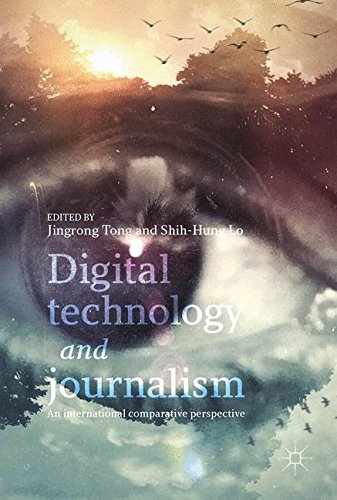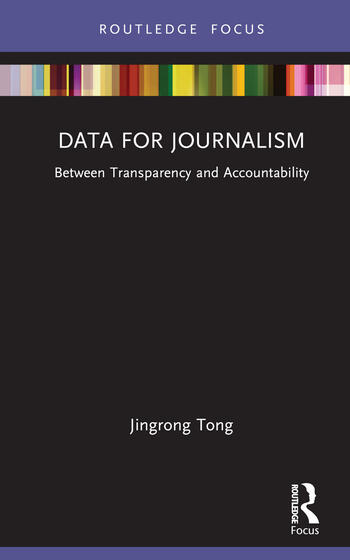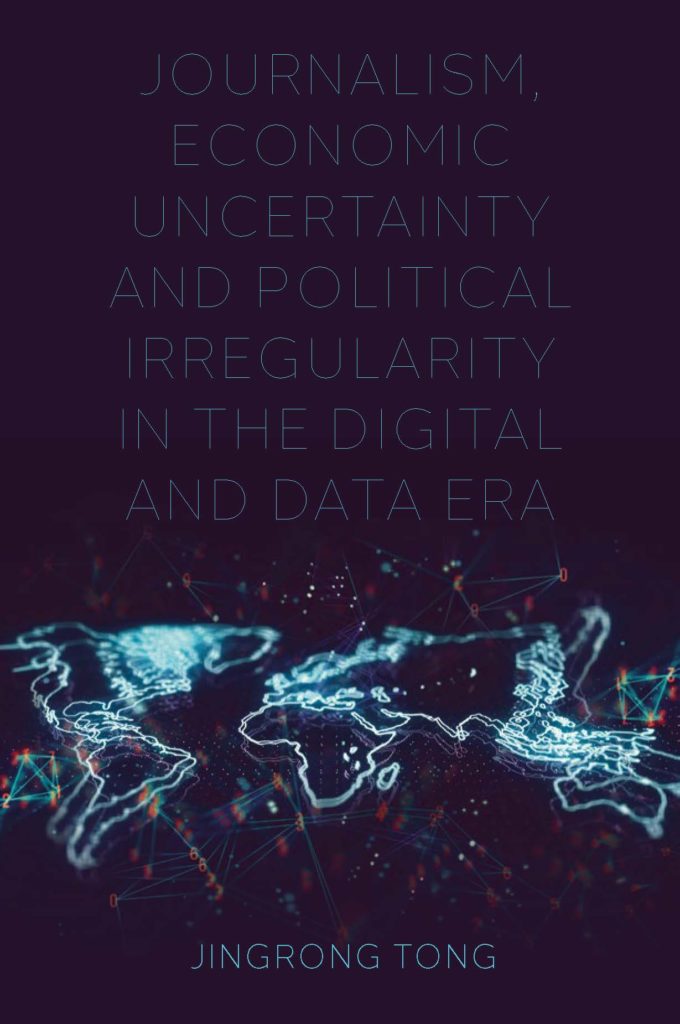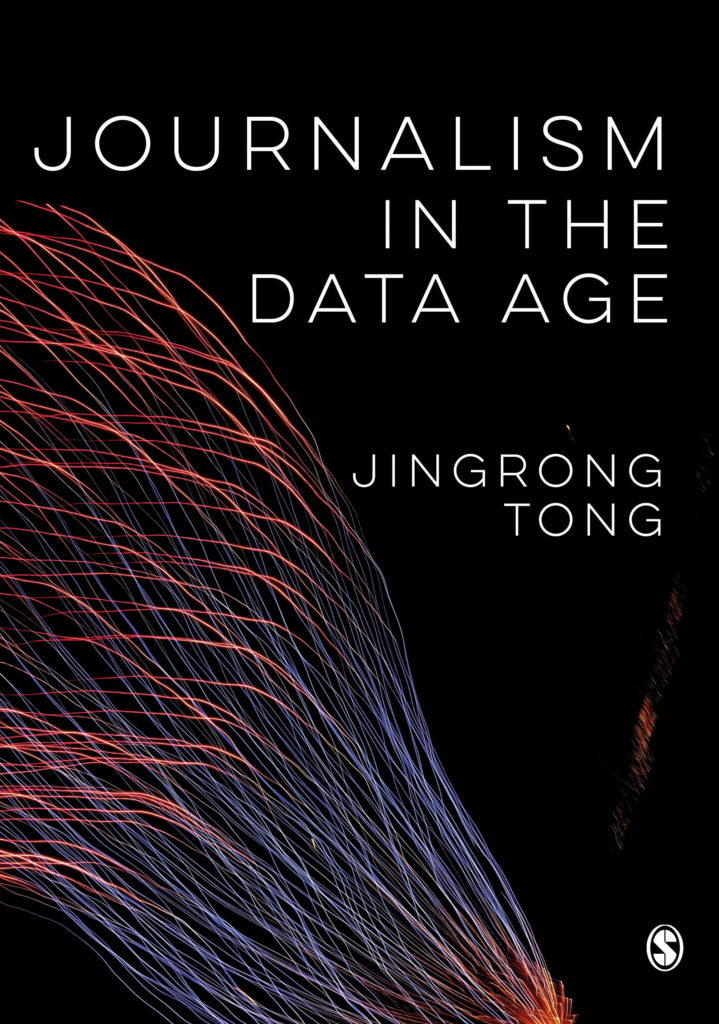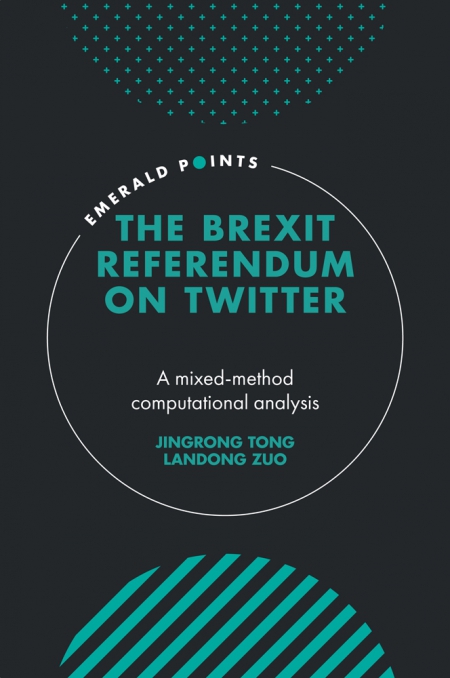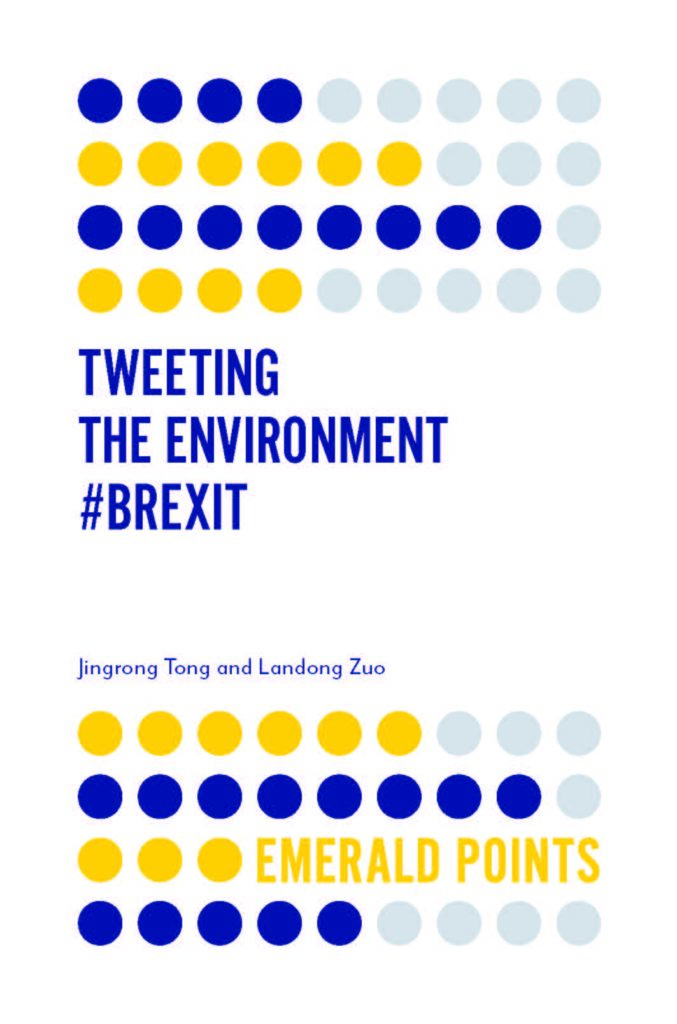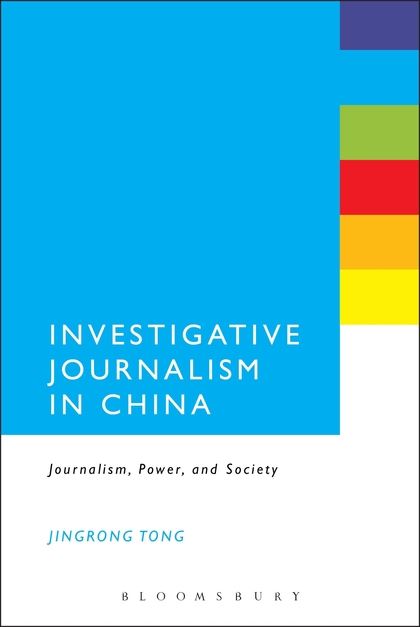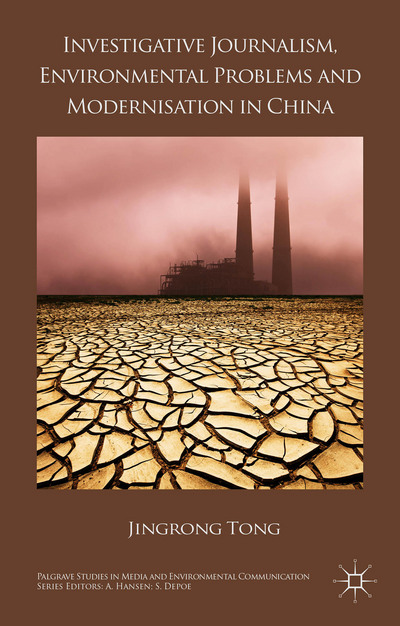Publications
Books
Journalism
Twitter Communication
Chinese Journalism
Journal Articles
This article examines the expertise of eight data journalists and its development and application in three British national newspapers and their Sunday counterparts. Apart from technical skills, such as coding techniques, their expertise has a social dimension: the ability to make knowledge/experience-based judgments, solve problems, communicate with audiences, and collaborate with non-data journalists and experts. Their learning of technical skills was initially driven by their personal imperative to stand out in the job market. The social dimension of their expertise builds on and interacts with their gaining and proficient use of technical skills, underlying the combined use of technical and journalistic skills in practice. It helps to achieve collaboration and consolidate cultural authority in telling reliable data stories. The applicability of their expertise transcends all topic areas and suits interdisciplinary, high-tech reporting tasks requiring multifaceted knowledge that a single journalist may not possess. Its application reflects an organizational strategy to modify the division of labor in well-resourced national newspaper newsrooms in the UK in response to the opportunities brought about by the datafication of our society.
The COVID-19 pandemic has brought the world to uncharted waters. Governments urgently need to figure out how to best handle the global health crisis and its impact on people’s lives. As well as struggling to contain and manage the pandemic, they also face challenges in maintaining their legitimacy. The eight contributions in this special issue provide a much-needed snapshot of whether and if so, to what extent and how government legitimacy was constructed and contested through the media in Chinese contexts, including mainland China, Hong Kong, Taiwan and Macau, during the first two years of the COVID-19 pandemic between 2020 and 2021.
This article discusses government legitimacy and the role of the media to provide a conceptual and contextual framework for this special issue. It will start with a discussion about the relationship between government legitimacy, crisis and the media before addressing the impact of the COVID-19 pandemic on government legitimacy and the existing literature on this topic. This article will then explain the importance of focusing on Chinese contexts, followed by introducing each of the eight contributions.
Data journalism is an emerging form of journalism, entailing the discovery of stories in data with the assistance of data algorithms. The burgeoning literature has largely interpreted the work of data journalism through the lens of objectivity. This paper, however, rejects the applicability of objectivity to data journalism. This inapplicability is the product of five factors: the extensive use of data and data algorithms in journalism; the difficulty in verifying data; the imbalance in data and data access; the uncertainty about if and to what extent data journalists can obtain sufficient knowledge of data contexts and algorithms; and their “design subjectivity” in the data processing process. Data reporting becomes a process of knowledge construction under the influence of these factors. The article argues that because of the social constructionist nature of data journalism, serving the public interest and democracy is a more appropriate principle than objectivity for data journalism. It suggests shifting academic attention from celebrating objectivity in data journalism to examining the epistemology of data journalists, the factors influencing data journalists’ formation of knowledge in reporting, their defence of cultural authority, and the democratic meanings of data reports in future research. Such understanding also has implications for data journalism pedagogy and practice.
Journalism Practice
In this article, we propose an observational, narrowing-down approach to analysing social media networks and developing research design by the joint use of computational algorithms and researchers’ inductive exploration and interpretive explanations. The Brexit referendum on Twitter study is used to illustrate how we applied this approach in practice. In this study, observation helped us combine the strengths of computational statistical analysis and modelling and of inductive inquiries. Computational algorithms and tools including Elasticsearch, Kibana and Gephi provided us with an “ethnographic field” where we were able to inductively observe the relationships among users and to reduce the amount of data down to a level in which we could intuitively understand these relationships. In traditional observational studies, talking to human subjects and observing their interactions in a research site are important to ethnographers. Likewise, it is useful for social science researchers to dialogue with data, observe human relationships embodied in the data and reconstructed by computational tools, and understand these relationships through closely examining a small batch of meaningful data that is extracted from large-scale data. In this case study, adopting the proposed approach, we found the importance of political disagreement leading to a tale of two politicians, in which pro-Brexit users denounced @David_Cameron but legitimised @Nigel_Farage.
A journalistic paradigm defines what journalism is, and what journalists should do, in relation to reporting news. Drawing from desk research and in-depth interviews with eighteen data journalists and experts in the United Kingdom, this article discusses the recent development and practices of data journalism in the United Kingdom and their implications for the journalistic paradigm, which involves the substantial use of interviewing. Embracing the opportunities provided by the datafication of society and the British government’s open data initiative, UK news organizations have institutionalized and incorporated data journalism into their organizational structure. However, difficulties in practice have emerged, resulting from new, mostly ethically grounded issues surrounding data. Traditional journalistic practices, in particular interviewing and cross-checking, provide a useful, practical guide to solving related problems. The institutionalization of data journalism, as well as traditional journalistic methods and skills coming as a solution, assimilate data journalism into conventional journalistic practices, reinforcing – rather than undermining – the journalistic paradigm.
Over recent years, the Western world has witnessed the (re-)rise of populism, which was marginal compared to the (once-)dominant ideologies of globalisation and European integration. This article examines the role played by the Twitter practices of politicians and the news media in mainstreaming populism through a case study of the 2016 Brexit referendum debates. The communicative freedom of politicians and the extensive attention given to them by users enabled the presenting of populist arguments as a legitimate part of debates about the referendum. The news media paid overwhelming attention to politicians and focused on the issues of immigration and the economy in their tweets, creating the sphere of legitimate controversy where populist arguments appeared in parallel with those supporting globalisation and European integration. In this case, the Twitter practices of British politicians and the news media led to the extensive – but largely uncritical – presence and articulation of populist claims on Twitter. Their strong presence alongside pro-EU and pro-globalisation arguments gave these populist perspectives a central place in the debates on the referendum. The mainstreaming of populism through the Twitter practices of politicians and the news media is inextricably linked with, and thus needs to be understood within, the broader context of rising populism where the (once-)dominant ideologies of globalisation and European integration are in decline.
The article offers a corpus-driven computer-assisted analysis of newspaper language immediately surrounding ‘im/migrant(s)’ in the Guardian, the Daily Telegraph and the Sun and their Sunday publications between 2011 and 23 June 2016. Drawing on moral panic and social representations theories, the study reveals that the newspapers increasingly ‘othered’ the European Union (EU) through constructing moral panics over ‘illegal’/‘EU’ ‘im/migrant(s)’ prior to the referendum, despite noticeable differences across them. It confirms that the EU was imagined as the origin and conduit of migrants entering the UK, especially by the two right-wing newspapers, constructing an antagonism between Britain and the EU, with implications for understanding the role of news media in shaping and signifying public discourses about Brexit. The conventional stigmatising norms labelling ‘immigrants’ have been adopted and extended to associate the object of the EU with the moral panics over ‘immigrants’, which reflects the changes in social representations of ‘immigrants’ and ‘the EU’.
This article examines how the interplay between political, economic and technological factors in China has resulted in the taming of critical journalism since the rule of Xi Jinping in 2012. While trying to reduce ideological ambiguity and revive Maoist ideology, the authorities operate overt and covert mechanisms of media control that dramatically limit reporting space. Market and digital communication technologies are currently contributing to tightening media control by worsening the context for critical journalism. The threat of the market to critical journalism that began in the early twenty-first century has deepened. The capitalisation of digital platforms, outperforming the empowering potential of digital communication technologies, has led to the pursuit of entertainment and capital in the media environment where critical journalism is practised. A hostile political climate and the pursuit of profit have radically diminished the necessary conditions for sustaining critical journalism. With this institutional crisis, critical journalism has little capacity and foundation to struggle with the party-state over reporting space. In this case, therefore, with neither the market nor digital media technologies being a liberalising force, they have helped the state to wield political power and to consolidate media control.
Journalism in general—Anglo-American journalism in particular—has undergone a number of profound changes within and outside the newsroom. This paper explores whether these changes have weakened the basis of journalistic legitimacy, or have offered new grounds for journalistic legitimacy, and, in each case, to what extent. It is argued that a number of factors, including the financial difficulties of news media, the decentralisation of public communication as facilitated by the internet, the dual dilemmas faced by both objective and partisan journalism, and the belligerent public discourse about journalism are delegitimising journalism. However, the legitimatisation of journalism can be found in the efforts of news organisations—not only leading news organisations such as the Guardian and the New York Times but also regional and local ones such as the Trinity Mirror group and the Palm Beach Post—in adopting and possessing digital and technological tools and skills, and in defending their journalism. The relegitimation of journalism reiterates and reinforces the historically shaped essence of journalism that reflects a continuity of legacy journalism; and this is an organisational and occupational response to, and boundary defence against, the trend of delegitimation of journalism in the digital era.
This article examines how three Chinese and two British newspapers sourced content from social media in their coverage of the 2008 Wenchuan Earthquake, the 2013 Ya’an Earthquake, and the 2015 Tianjin Explosion. The media outlets citing of social media content present different patterns in line with their political and commercial interests, ideologies, and journalistic values. Diverse images of the three disasters as revealed on social media (social media reality) were constructed in the newspapers’ coverage. Journalists gate-keep information from social media and dissolve it into daily disaster reporting, accepting selected aspects of social media reality but rejecting others. Especially in the case of the Chinese newspapers, meeting the needs of domestic political and commercial interest groups, journalists endorse social media content that is favorable to these groups. In so doing, social media technologies are used and tailored to meet the needs of journalism.
This article offers a review of the Chinese-language literature on environmental communication in mainland China. In particular, it discusses the main features, promises, and limitations of the relevant literature. All academic papers matching particular keywords for environmental communication in seven top-ranking Chinese-language media and communication journals (four in mainland China, one in Hong Kong, and two in Taiwan) were collected and analysed quantitatively. The first section of the article presents the findings of the quantitative analysis based on several aspects, including the journals’ main interests, distribution of publications over time, types of topics, research methods, leading authors in the field, their choices of research methods and topics, and the inclusion of English-language literature. The article turns to qualitatively examining the wider available Chinese-language literature on environmental communication. It then evaluates the current status of and challenges to Chinese-language research in this field and suggests some directions for future research.
This article examines what objectivity means to 15 environmental journalists at two Chinese newspapers and how this value guides their practices. It reveals that although objectivity is central to their journalistic ethos, the participants see it as ethical to organize reports within a framework arising from their personal judgments of news events. The appropriation and particular definition of the American journalistic norm of objectivity increases the participants’ political safety and justifies them in playing their perceived role as guardians of society and educators. In so doing, they negotiate with other social actors and consolidate their cultural authority over defining reality.
This article discusses the importance of emotions to China’s public life and the way in which the Internet and news media channels have publicized emotional outbursts by the public in China in recent years. An agonistic public sphere is being formed, the basis of which is the expression of emotions, especially hatred, resentment, anger and compassion, both on the Internet and in the news media. As a result, conflicting interests are contested and paradoxes in society are exposed. This development is close to what radical democracy theories conceptualize as an agonistic public sphere. This emotional dimension in public life is a crucial means for China’s subordinated citizens to strive to utilize resources to change the current hierarchy in society. The formation of an agonistic public sphere democratizes communication processes, opens a space for public participation and gives voice to the public who are otherwise silent. The expression of emotions has the potential to break down the Chinese Communist Party’s hegemony.
China Information
This paper offers a case study of the epistemology of Chinese environmental investigative journalists, drawn from 42 in-depth interviews conducted between 2011 and 2013. The study proposes that it is the knowledge that journalists form, rather than whether the knowledge is objective, which is important for understanding the epistemology of environmental investigative journalists. The analysis reveals that four types of knowledge are central to what participants come to know about environmental issues in the process of validating evidence and making judgments. The importance of experience, cognition and evidence-based judgment in the knowledge formation process means there is an inevitable (but covert) involvement of journalists’ subjectivity in their reports. This suggests that the participants practise an advocacy and ethnographic journalism, characterised by pragmatism, existentialism and particular standpoints, while making a strong claim to “truth”. These standpoints are generated in the pre-writing investigation stage rather than in the writing-up stage. Therefore, in this case study, the epistemology of environmental investigative journalism is concerned with how and when meanings and opinions are generated in the process of knowledge acquisition, rather than whether the knowledge is objective.
Journalism Studies
This article examines how journalists defend their boundaries and epistemic authority in the face of the challenges from user-generated content (UGC). It investigates the issue through exploring 51 Chinese journalists’ views of UGC producers and journalism. The interviews reveal that in this case study, Chinese journalists’ commitment to their social identity as ‘people of work units’ (danwei ren), i.e. their identity is defined by the employment relationship between journalists and news organisations, forms the ground of demarcating the boundaries between journalists and UGC producers. As a result, this group of Chinese journalists reinforces their conventional journalistic norms and identity as ‘organisational men/women’ and keeps old-fashioned journalism alive. In the meantime, however, they are aware of changes in the environment within which they practice, and therefore they reflect on their work and (re-)define what journalism is in order to adapt to the changes. This case study shows that the boundary work of Chinese journalists interviewed in the study and their understanding of boundaries are contextually bound. The boundary work of journalism is not only about defence but also about adaptation. It offers a perspective for understanding both continuity and change in the transformation of Chinese journalism as well as the boundaries of journalism in general.
Asian Journal of Communication
This article examines the response of Chinese mainstream journalists towards their citizen counterparts, through an analysis of how journalists constructed a discourse of ‘netizens’ and journalism in the case of Deng Yujiao. The analysis is mainly drawn from a discourse analysis of the newspaper coverage of this case in the Southern Metropolitan Daily (SMD) and the relevant journalists’ reflexive articles on the same topic published in the Journal of Southern Media Studies (JSMS). The discourse analysis is supplemented by interviews with 60 journalists in 2011 concerning their views of netizens in general and of the conflict between journalism and netizens in this particular case. Based on these three elements of analysis, this article offers an account of how institutionally-shaped journalistic norms and values have been used to set up and maintain the occupational boundaries of Chinese journalism, in an attempt to defend journalistic legitimacy by making a clear distinction between ‘amateur netizens/them’ and ‘professional journalists/us’.
Journalism
Economic modernization has been China’s national priority since the establishment of the People’s Republic. Since the authorities retain control over the media, which is also now subject to commercial influences, it might be expected that the Chinese news media would construct a discourse of assurance, endorsing economic modernization. A framing analysis of newspaper investigative reports on environmental problems in this article, however, shows that these reports have portrayed environmental problems in a manner that opposes rather than supports the national priority for economic growth. It challenges rather than reinforces the current institutional discourse of development and criticizes rather than contributes to the present structure of the capitalist mode of production in China. In this case, the prominence of the critical reflective discourse demonstrates the critical role investigative journalism potentially plays in arousing the public’s awareness of risks in order to create a society in which such risks can be minimized. Factors in the wider social context contribute to our understanding of the critical discourse of environmental problems.
This article, based on a computer-assisted analysis of Weibo communications about two recent ‘mass incidents’ in China, offers a model for understanding online communication’s influence on government legitimacy. This study explores the discourse of Weibo discussions on social protests and what impacts this discourse may have on the legitimacy of Chinese government in the digital environment. The Weibo discourses on the two mass incidents suggest two modes of online communication: one-way communication, where local residents have taken the initiative and two-way communication, initiated by both local residents and national elites. Different themes the discourses have touched suggest different types and levels of impacts Weibo discussions have on government legitimacy. More precisely, the discourse in which there is a critique of the current national political system in China is more challenging to government legitimacy than the one in which there are only demands for local changes. The online discourse about the Haimen incident on Weibo even can be seen as reinforcing government legitimacy. Therefore, the impact of online communication on government legitimacy is relative and depends on specific cases. To understand the power of online communication requires us to analyse the nature of online discourses about specific cases and then examine them within external social and political contexts and by comparing them with one another. Contextual dynamics such as social problems and tensions can function as an indicator for understanding the type and level of impact of online communication on government legitimacy.
Information Communication in China
Drawing on ethnographic fieldwork, this article examines how changes in investigative journalism have taken place in two Chinese provincial newspapers—the Dahe Daily and the Southern Metropolis Daily—in the period from 1997 to 2006 and what such changes mean for investigative journalism in the country as a whole. Investigative journalism started almost simultaneously in the two newspapers in the late 1990s but developed along different trajectories in the following 10 years. The differences are the result of interaction between investigative journalists, news organizations, and the varying local and national social contexts in which investigative journalism takes place. The practice of investigative journalism benefits from the institutionalized choice of journalistic values in a given social context. Chinese journalism within news organizations reflexively looks for an appropriate position in the social space of the locale where it operates and seeks to construct a proper social identity to join in the production of culture in that space. These dynamics have generated various levels of journalistic autonomy in different places across China.
Journalism Practice
This paper examines the relationship between a broadcaster’s research methods and aspects of the environment in which it operates, specifically its accountability to its funders and the growth of interactivity by its users. It is concerned with (1) how the BBC World Service’s funding by the UK government’s Foreign & Commonwealth Office (FCO) means that it has to account for its activities to some extent in terms of the global conversation which it fosters; and (2) how the recent growth of interactive and social media enhances possibilities for worldwide engagement and conversation, but also increases the complexities of measurement. This is because users are dispersed across the globe (they are no longer confined to a geographical area of radio reception) and they are interactive: instead of merely listening or viewing, they talk back to the BBC, and they talk with one another. New tools and techniques are needed to measure these new flows and forms of interaction (and they also beg new professional and organisational practices). In a case study of the BBC’s Chinese service, the paper explores what the BBC knows of its audience or users; and, in a content analysis of online forums, it explores some of the issues and possibilities that arise in researching online interaction, the sort of research data and analysis that might be seen as necessary in the context of organisational accountability and the emerging interactive media environment.
Journal of Audience & Reception Studies
Media, Culture & Society
This article examines the way in which newspaper discourse gets changed. Original reports of three social problem events that journalists sent to two different newsrooms and reports that were published are compared using critical discourse analysis. It is argued that the practice of self-censorship helps newsrooms bypass political ‘minefields’, and at the same time increase the possibilities of the publication of reports on highly politically sensitive topics. In this sense, in the Chinese authoritarian media system, self-censorship has potentially become a force that increases media freedom instead of a threat to media freedom. This special function of self-censorship fits what Gramsci describes as a ‘war of position’ for Chinese journalism.
The situation of investigative journalism in China is precarious. There are serious pressures from both the party-state and advertisers that have reduced the opportunities for this kind of journalism. On the other hand, investigative journalism has proved a very important tool in the economic development of some newspapers, and has been integrated into their organizational structure as well as providing what might be termed a professional ideology for journalists. But as the pressures on news organizations have grown, they have been forced to respond. Some, notably television but also many newspapers, have more or less abandoned investigative journalism. Others attempt to retain the practice, but adopt a very cautious strategy. In some cases, however, the market position of the newspaper and the self-identity of the journalists mean that they retain a strong commitment to investigative journalism. In this, they are aided by the development of the Internet, which provides a good source for stories, an arena in which it is possible to publish material that could not appear in the traditional media, and a way of ensuring that sensational stories gain a wider audience. On the other hand, even those newspapers that pride themselves on maintaining their commitment to this kind of journalism have developed strategies to minimize the negative political and economic consequences of their activity. The article concludes that while investigative journalism in China faces a difficult future, it is very far from entirely defunct.
Book chapters
(2022) “Policing content on social media platforms: three dilemmas and their ethical and legal implications”, in AI in the media sector, edited by Pihlajarinne and Alen, Edward Elgar Publishing.
(2021) “Local data journalism in the UK”, in Reappraising Local and Community News in the UK, edited by Dave Harte and Rachel Matthews, London: Routledge.
(2020) “The return of party journalism and ‘Janusian’ content in China: the case of Newspaper X”, in New Routledge Companion to Local Media and Journalism, edited by Baines et.al. London: Routledge.
(2020) “Investigative Journalism in China: Pushing the limits between the 1990s and 2013”, in Routledge Handbook of Chinese Culture and Society, edited by Kevin Latham, London: Routledge.
(2017) “A computational analysis of British journalists’ use of Twitter before the 2016 UK’s EU referendum”, in Tong and Lo, (ed.) Digital Technology and Journalism: An International Comparative Perspective, London: Palgrave.(1st with Landong Zuo)
(2017) “New media reforms and journalism cultures in two newspapers in mainland China and Taiwan” in Tong and Lo, (ed.) Digital Technology and Journalism: An International Comparative Perspective, London: Palgrave. (1st with Shih-Hung Lo)
(2017) ‘Introduction’ in Tong and Lo, (ed.) Digital Technology and Journalism: An International Comparative Perspective, London: Palgrave.
(2015) “The Chinese Diaspora, Motherland, and “June Fourth”: A Discourse Analysis of the BBC Chinese “Have Your Say” Forum, 2009–13”, in Wanning Sun and John Sinclair, (ed.) Rethinking Chinese Diasporic Media: Soft Power in Global and Local Contexts, Routledge.
(2014) “Discourse of Journalism and Legitimacy in post-reform China”, in Qing Cao, Hailong Tian and Paul Chilton (ed.) Discourse, Politics and Media in Contemporary China, Amsterdam, Philadelphia: John Benjamins.
(2014) “Local Investigative Journalism: Understanding the Background, Context and Trajectories of Investigative Journalism in Dahe Daily and Southern Metropolis Daily”, in Marina Svensson; Elin Sæther and Zhi’an Zhang (ed.) Chinese Investigative Journalists’ Dreams Autonomy, Agency, and Voice, London: Lexington Books.
(2012) ‘Discussions on BBC Chinese Have Your Say Forums: National Identity and International Broadcasting in the Interactive Media Era’, in Marie Gillespie and Alban Webb ed. Diasporas and Diplomacy: Cosmopolitan contact zones at the BBC World Service (1932-2012), London: Routledge, 2012 (1st author with Hugh Mackey)
Special issue (edited)
(2022) Confronting COVID-19: constructing and contesting legitimacy through the media in Chinese contexts. Chinese Journal of Communication, 15(2)
Journal articles, books & book chapters (in Chinese)
(2014) Social Media and Journalism, Quality Journalism Development Association: Taibei, Taiwan (ed. 2nd editor with Shih-hung Luo)
(2014) ‘Discourse of Chinese Journalism in the Media 2.0 Era’, in Shih-hung Luo and Jingrong Tong (ed.) Social Media and Journalism, Taibei: Quality Journalism Development Association
(2013) “Weibo Communication and The Epistemic Authority of Chinese Journalism”, in The Chinese Journal of Communication and Society, Hong Kong
(2006) ‘Social Discourse of Journalistic Professionalism in the Chinese Context’ in The Chinese Journal of Communication and Society, Hong Kong, Vol. 1, December.
(2006) ‘Simulacra, Representation, and Televisual War: an anthropological interpretation of televisual war’, in Communication Journal, Shanghai, Vol. 4, August.
(2005) ‘Rethinking Positivist and Critical Traditions in Audience Studies’, in Communication Journal, Shanghai, Vol. 3, May.
Journalism
Silencing bad news won’t help China’s economy Nikkei Asia Review, August 7, 2019
環境是有階級的嗎?陽光時務 April 14 2013
當學界與報界唱反調 陽光時務 May 12, 2013
萨达姆终结 南方人物周刊杂志 2006
直击伦敦恐怖袭击后街头惨状:伦敦今天瘫痪了 南方都市报 July 8 2005
丁俊晖 全体育
